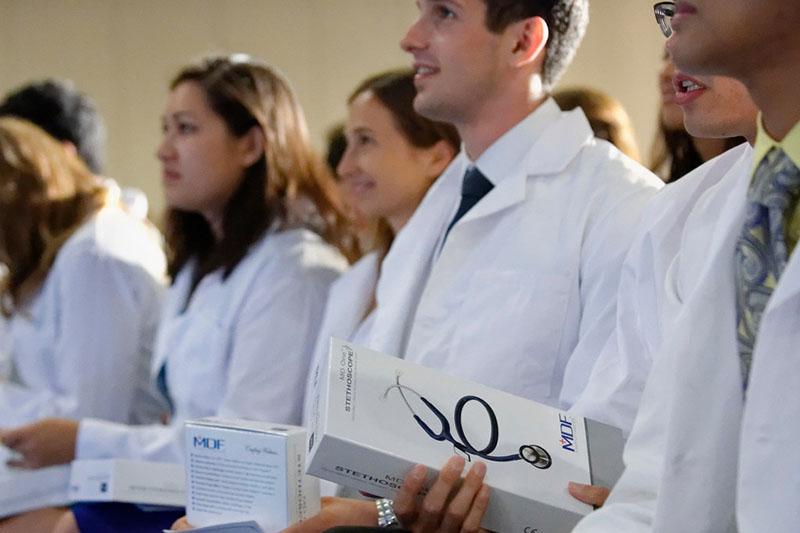LCME accredits School of Medicine for full eight-year period
In June, Tulane School of Medicine received a full eight-year accreditation from the Liaison Committee on Medical Education (LCME), the maximum time frame that LCME allows.
The accreditation caps off two years of gathering data, input and insights from current medical students, recent alumni, and faculty and staff. N. Kevin Krane, MD (M ’77), vice dean for academic affairs and professor of medicine, oversaw the process along with Accreditation Project Manager Rhonda Coignet (B ’05).
“This is a tremendous achievement for the School of Medicine,” said Lee Hamm, senior vice president and dean of the School of Medicine. “While accreditation may sound like an easy achievement, LCME has been raising the bar, challenging even the best schools — so eight years is really a testament to the hard work and excellence of our faculty, students and staff.”
Student input was critical to the accreditation, and Krane complimented the professionalism of School of Medicine student leadership and participants. Dean Hamm was very supportive of the changes necessary for success, particularly a new schoolwide professionalism program, Krane added.
While the administration was pleased with the eight-year accreditation, the process benefited the School of Medicine on more than one level.
“The accreditation process was an opportunity to make significant improvements,” said Krane, “and to reflect on areas that we can enhance, which included everything from admissions processes, policies that we have, evaluation of students and faculty, support for research, and the physical environment as well.”
One benefit of an eight-year accreditation is the ability to provide ongoing monitoring and adjustments to students’ education and experiences through the continuous quality improvement process without an interim site visit.
For Tulane medical students, “a key issue is creating a positive student-learning environment up front,” Krane said. “When students walk in, whether it’s in a clinical setting or a classroom setting, they [should] feel that it’s going to be a positive experience for them beginning on day one.”

